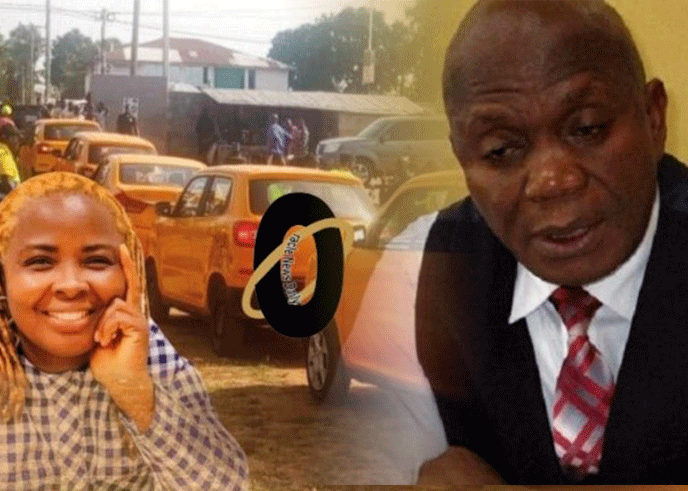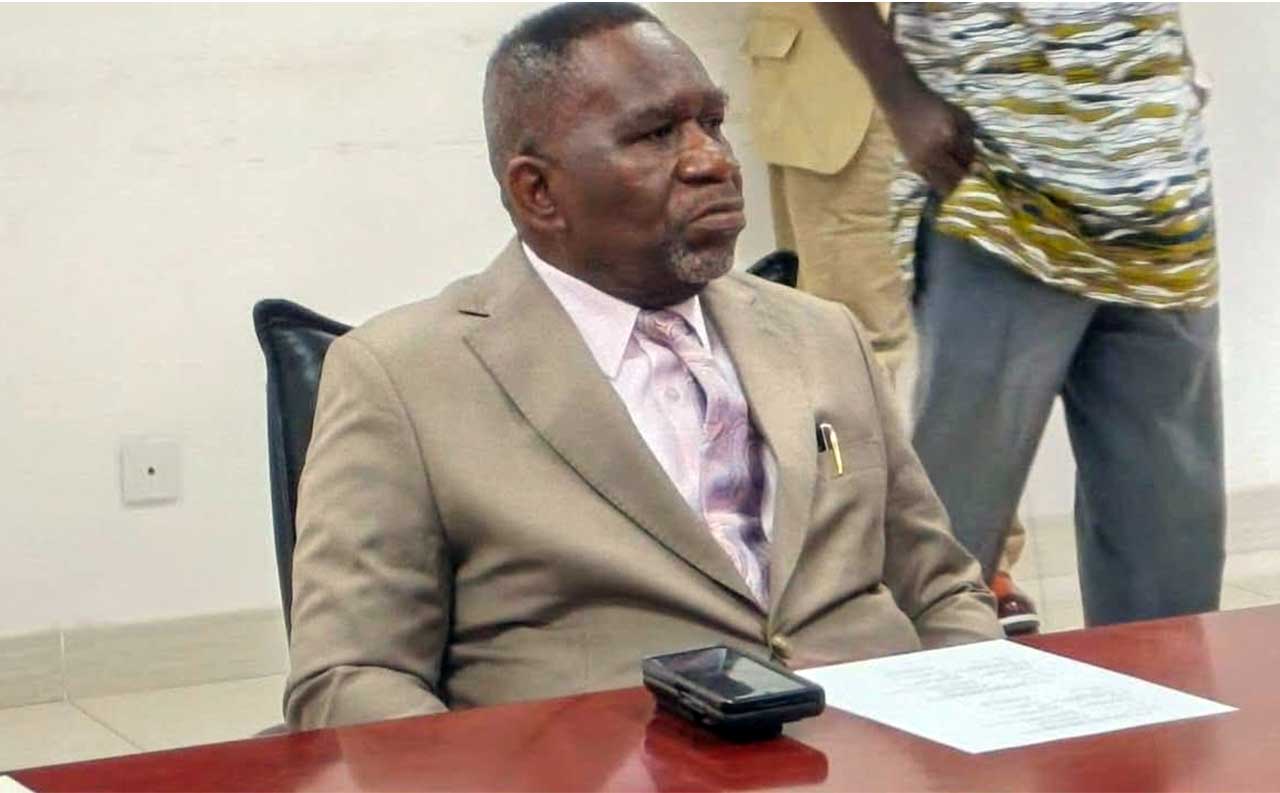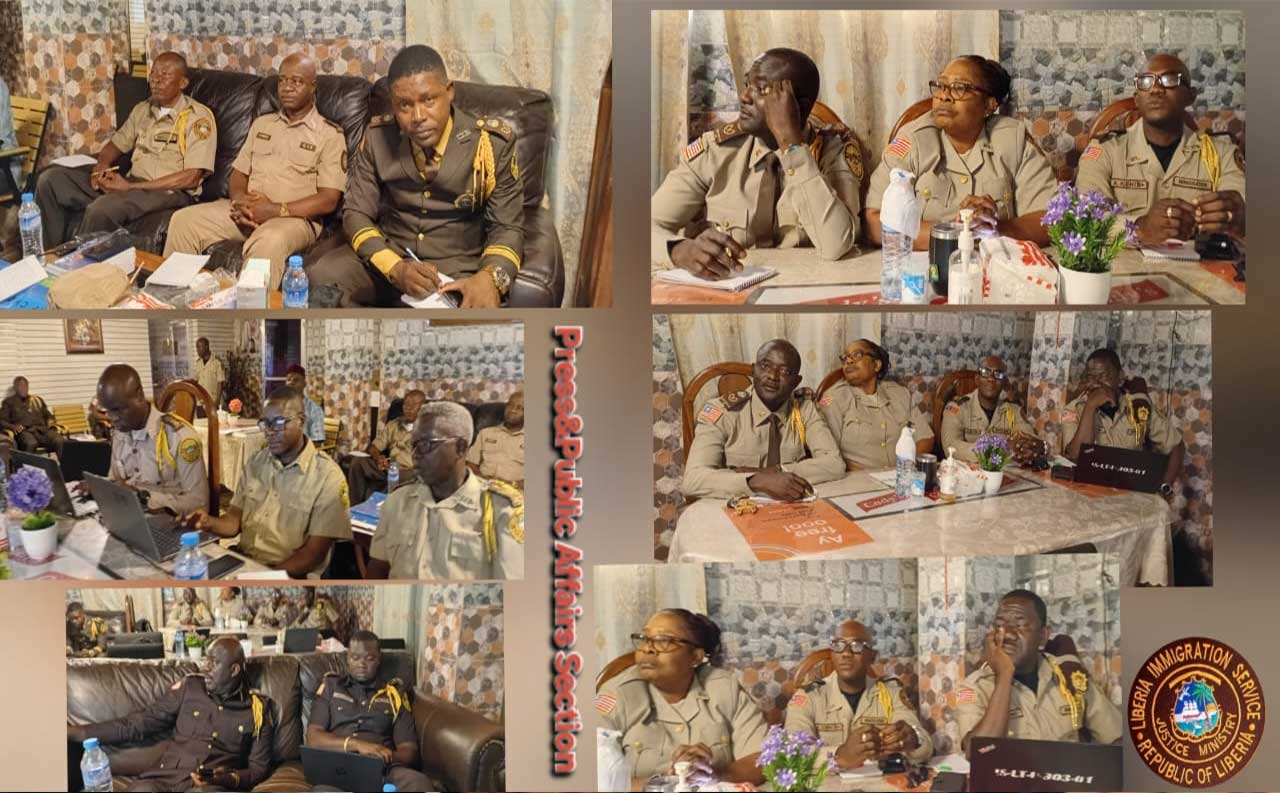Over the weekend the Supreme Court of Liberia entertained arguments in the case involving the Assets Recovery and Property Retrieval Team and Gracious Ride through their legal teams.
The Supreme Court on Thursday July 4, 2024, heard and reserved ruling in the arguments from both parties based on an appeal by Gracious Ride following a petition for a writ of prohibition filed through her lawyers.
The petition seeks to stop the Task Force operation, which was denied by the Chambers Justice, Yusuf D. Kaba. Justice Kaba ruled, “By directive of His Honor, Yusif D. Kaba, Associate Justice presiding in Chambers, and considering the attached communication from the respondent, you are hereby informed that the Justice has declined to issue the writ prayed for by the petitioner, reserving the rights to the respondent to proceed in keeping with the law.”
However, following the ruling, Gracious Ride proceeded to the full bench of the Supreme Court questioning the legal status of the President to create an Asset Recovery Team.
Cllr. Edwin Kla Martin representing the Assets Recovery Team, argued that Gracious Ride doesn’t have the standing or capacity to sue.
He relies on Chapter 11 Sub-section 11(e) of the Civil Procedure Law of Liberia. His contention was whether or not the establishment of Executive Order #126 violated the rights of the petitioner as being alleged?
Cllr. Martin argued that at no time the President through his Executive order violated the rights of the petition because issuing an executive order power is squarely vested in the President only.
He also quoted Article 50 of the 1986 Constitution of Liberia which states that, “The Executive Power of the Republic shall be vested in the President who shall be Head of State, Head of Government and Commander-in-Chief of the Armed Forces of Liberia. The President shall be elected by universal adult suffrage of registered voters in the Republic and shall hold office for a term of six years commencing at noon on the third working Monday in January of the year immediately following the elections. No person shall serve as President for more than two terms.”
While arguing, Justice Gbeisay asked him whether it was necessary for him to act like police officer by seizing those vehicles without any legal grounds. But Cllr. Martin responded that those vehicles were seized in order for them to produce their title documents because they are under obligation to investigate suspicious or stolen properties belonging to government.
Cllr. Martin was also slapped with another question from Chief Justice Sie-A-Nyene G. Yuoh whether there were any notice, radio and publication done prior to the seizing of Gracious ride vehicles in the street but he responded that they partially erred in that direction.
He also relied on Article 3 and 5(c) of the 1986 Constitution of Liberia to defend their actions. He therefore, prayed for the high court to rule in their favor because an Executive Order right exclusively is vested in the president.
In counter argument, Gracious Ride lawyers Cllrs. Michael Wilkins Wrights along with Abraham Zayzay declared President Boakai’s Executive Order #126 as unconstitutional.
Cllrs. Wrights and Zayzay questioned the legal authority of President Boakai Executive Order #126 in which their commercial vehicles were illegally seized by the Asset Recovery and Property Retrieval Task Force in March of this year.
Gracious Ride lawyers said, they have standing because they were greatly affected by the actions of the Asset Recovery and Property Retrieval Task Force by seizing their vehicles in the street without any legal authority.
Cllr. Wrights’ contentions before the Full Bench was whether or not President Boakai has the authority to dedicate legislative define role to Asset Recovery and property Retrieval task force, whether or not, the President’s conduct of issuing Executive Order #126 violates the Constitution of Liberia.
Dealing with the first issue, Cllr. Wrights answered in the affirmative that President Boakai violated the authority of the Legislature in Article three of the Liberian Constitution.
The former Associate Justice Wrights claimed that President Boakai violated Article 89 and 5(C)of the Liberian Constitution.
Cllr. Wrights said even though he’s not challenging the authority of the President for issuing his Executive Order but the establishment and conduct of the Asset Recovery and Retrieval task force.
“There are parallel institutions like the LACC, FIU” and others are legal entities enacted by the Legislature responsible to do similar job as the Asset Recovery and Retrieval task force,” Cllr. Wrights added.
Cllr. Wrights also relied on Article 34(I) of the Liberian Constitution “By establishing the Executive Order #126, our rights were being violated,” by stopping our vehicles in the street by putting off passengers without court order.
He argued that it is the duty of the Legislature to promulgate laws and if President Boakai wants the Asset Recovery and Property Retrieval Task Force, it should be legitimate, let it pass through the Legislature or amend the LACC Act.
“Creating an Executive Order cannot overturn other existing laws,” Cllr. Wrights added. Cllr. Wrights therefore prayed the court to declare the President’s Executive Order unconstitutional because it is the Legislature that has the authority to create laws in the Republic of Liberia.
It can be recalled that in March of this year, Gracious filed a petition for a writ of prohibition against the Executive Branch of Government to prohibit their actions from seizing their vehicles illegally.



